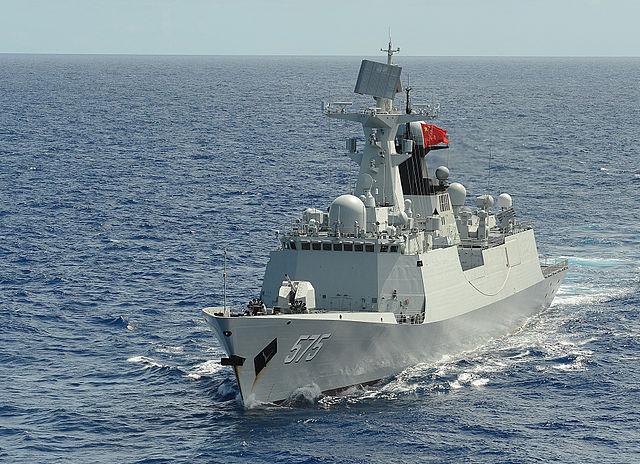
The revelation by the Fairfax Press—which hasn’t been confirmed by any other source—that China may be interested in building a military base in Vanuatu has raised a storm of negative commentary. Prime Minister Malcolm Turnbull expressed ‘grave concern’ for Australia’s interests that the South Pacific not be militarised in this way.
Here are some of the reasons why such a development—were it to occur—would be a serious worry for our defence planning. As Penny Wong has stated, it would be a game changer. Thirty years ago, the 1987 Defence White Paper observed that countries in the South-West Pacific region lie across important trade routes and approaches to Australia’s east coast, where most of our major population centres are located.
It went on to say that ‘an unfriendly maritime power’ in the area could inhibit our freedom of movement through these approaches and place in doubt the security of Australia’s supply of military equipment and other strategic materiel from the United States.
In the Cold War, the activities of the Soviet Union came under scrutiny because a number of developments affecting the South Pacific had increased the region’s potential to pose strategic problems for Australia. Among these developments were the establishment of links between some regional states and external powers ‘with strategic interests potentially inimical to Australia’s’. In particular, the Soviet Union had fisheries agreements with Kiribati and Vanuatu. We knew that Soviet fisheries vessels, mother ships and so-called hydrography research ships had intelligence collection tasks.
The 1987 white paper proclaimed that further access by the Soviet Union, ‘especially the establishment of a presence ashore’, would be an unwelcome development because of its potential to enhance Soviet influence in the region. Although Soviet involvement in the region in fact remained at a relatively low level, there was continuing concern that ‘the fragile and narrowly based economies’ of the South Pacific would continue to present opportunities for exploitation by external powers.
As a result, a program of Australian P3C Orion long-range maritime patrol deployments was commenced in 1983, and RAN ship visits to the South Pacific were increased. The latter was a policy decision taken to emphasise the South Pacific at the expense of some of our more distant deployments, reflecting how important it was.
By the mid-1980s, Canberra was acutely concerned by the fact that the Soviet Union had established a major naval base—the largest outside of the Warsaw Pact area—at Cam Ranh Bay in Vietnam. This base hosted Soviet warships and submarines, bombers and an advanced signals intelligence facility. Throughout the 1980s, it was a prime target for Australian covert submarine operations and P3C Orion activities. The US Vice President, Dick Cheney, told me in the White House in 2002 just how important our submarine operations were against the Soviet Navy at that time.
All that was a long time ago. But the historical record shows how seriously Australia has reacted to potential adverse military developments in our neighbourhood.
For the future, in the most drastic of circumstances, Australia might have to contend with a major-power adversary operating in our approaches, including as a consequence of wider conflict in the Asia–Pacific region. Were such an adversary to have access to a major military base, Australia would need maritime strike forces giving us an acceptable margin of confidence that hostile military operations in our region of primary military concern could be contested effectively and substantial costs imposed.
China claims it has no overseas military bases, although it’s constructing what it calls an ‘overseas logistics base’ in Djibouti and is actively looking in such places as Pakistan and Sri Lanka for other bases in the Indian Ocean. Were China to acquire a military base in the South Pacific or the Southeast Asian archipelago (for example in East Timor, which is only 400 kilometres from Australian territory), the strategic consequences for us would be serious.
We have long acknowledged in our defence planning that if a potentially hostile power were to secure a military base in our neighbourhood that would greatly improve the capacity of such a power to use military force against us. If Australian intelligence were to detect the development of such a military base by China, it would be vital that we possessed the military capability—if required—to deny it.
All of this isn’t to treat China as our inevitable adversary. But neither should we pretend that our strategic circumstances wouldn’t change dramatically if China established a military base in Vanuatu. Such a base would be evidence that China aims to use its military power to expand its strategic space at very considerable distance from its homeland in an area of little strategic concern to it.
The fact is that attacks on Australia of an intensity and duration sufficient to be a serious threat to our national way of life would be possible only by forces with access to bases and facilities in our immediate neighbourhood. A sharp lift in our strike capabilities would be essential in those circumstances.